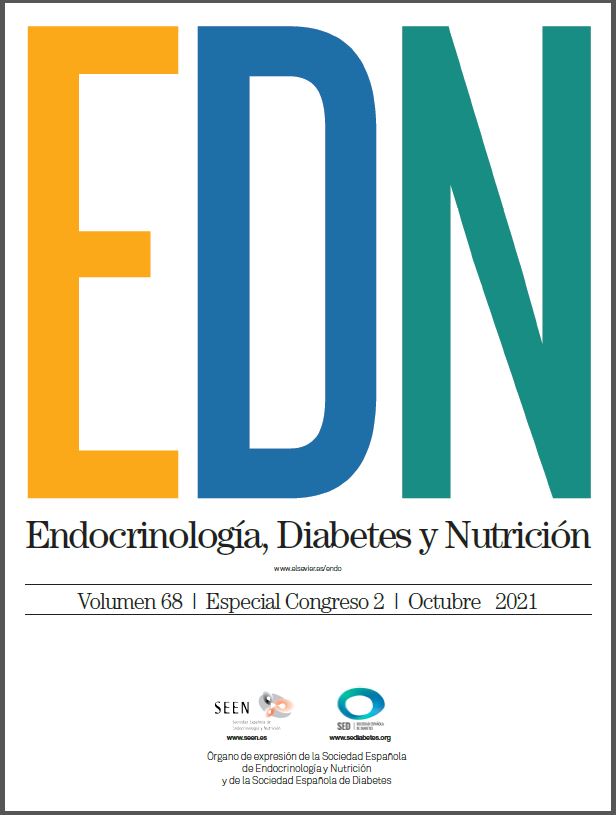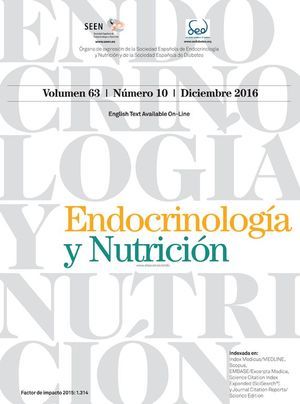301 - SPECTACULAR RESPONSE TO A CONTROLLED, NON-COMMERCIAL, MILDLY KETOGENIC DIET IN A PATIENT WITH PRADER-WILLI HYPERPHAGIA
1Unidad de Nutrición. Centro Endocrinología Coruña. La Coruña. 2Medicina Interna. Hospital Universitario de Badajoz.
Case report: A 25-year-old woman with Prader-Willi syndrome (PWS), pathological FISH 15q11-q13 SNRP deletion, included phono-syntactic disorder, psychomotor retardation, medium-low intellectual capacity (IQ 57), and hyperphagia-obesity. Childhood overweight (P97) and great craving for food were common, but by age 12, eating behaviour worsens (inability to control impulses to satiety, binge eating) despite treatment with methylphenidate and fluoxetine. She requires strict supervision (pantry, fridge, sweets) as well as continuous ("without a minute's rest", "chameleon speed"). Family support is excellent: in the morning she accompanies her father to help with household chores (vacuuming, cleaning cars, etc); and in the afternoon she helps her mother in a clothing business (putting clothes on, etc.), uses a tablet-PC for games and videos and attends pilates and painting classes. She weighs 84 kg (BMI 30). Diet: she started a mild and controlled ketogenic diet (Keto-VR) after learning how to report intake-activity and weekly capillary ketone (17OHbutyrate) measurement. A list of supermarket products classified by their low carbohydrate content and general recommendations were included. From the first week, the family reported a dramatic change in the patient's appetite behaviour. Tolerance and adherence were excellent. She lost 20 kg/9 m (BMI 22) which is maintained 2 years later (BMI 20.7-21.6). The usual ketonemia is 0.1 to 0.2 mmol/L. Blood tests are normal and she refers to feeling fine. Monthly check-ups are done by email and only require annual visits. The drastic change in appetite control ("we don't have to be behind", "it is controlled at family meals", etc.) is making its management much easier.
Discussion: The use of a non-commercial, slightly ketogenic diet in a patient with PWS has been very well tolerated, effective and safe. It stands out the normalization of the weight and, above all, the excellent control of hyperphagia, which is maintained over time.







